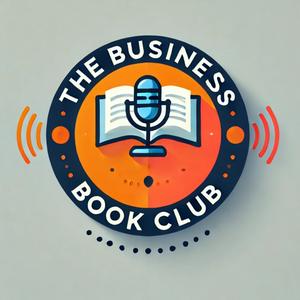EP 49 Co-Intelligence: Embracing AI as Your Alien Co-Worker
Episode Summary
In this episode of The Business Book Club, we explore Co-Intelligence: Living and Working with AI by Ethan Mollick—a pragmatic guide to mastering AI as a true augment to our own intelligence. Mollick frames AI as an “alien in the room” capable of astounding creativity and reasoning, yet still unpredictable and biased. We unpack the history of AI, how modern LLMs and multimodal models work, their strengths (creativity, scale) and weaknesses (hallucinations, bias), and most importantly Mollick’s four principles for thriving alongside AI. Whether you’re an entrepreneur, knowledge worker, or leader, you’ll learn how to experiment effectively, collaborate with AI as a “co-worker,” and reshape your workflows for the AI era.
Key Concepts Covered
AI as Alien Co-Intelligence
LLMs are “connection machines” that predict the next word, leading to emergent reasoning and creativity—but also hallucinations.
AI is powerful yet opaque, requiring constant alignment and oversight.
Brief AI History & Technology Primer
From the “mechanical Turk” to Turing’s test to AI winters.
2017’s “Attention Is All You Need” sparked large language models (pre-training + fine-tuning via human feedback).
Emergence of multimodal models that understand text, images, even generate code.
Hallucination vs. Creativity Paradox
AI “makes stuff up” (risk) but that generative randomness can fuel novel idea synthesis (reward).
Studies show AI outperforms humans in creativity tests and idea generation.
The Alignment Imperative
Societal effort—labs, governments, public—needed to ensure AI remains safe, fair, and beneficial.
Jailbreaks highlight the ongoing challenge of robust guardrails.
Mollick’s Four Principles for Co-Intelligence
Invite AI to the Table
Map your “jagged frontier” of AI capabilities by continuous experimentation in your niche.
Early experiments reveal surprising strengths and gaps.
Treat AI as a Person
Use persona setting: assign roles (e.g., “You are an editor…”) to get tailored, context-aware output.
Personas help simulate diverse human perspectives and enhance output quality.
Engage AI as a Creative Partner
Leverage AI’s generative abilities for brainstorming, copywriting, design, and prototyping.
No special “prompt engineer” needed—writers, marketers, and other humanities folks often excel.
Assume It’s the Worst AI You’ll Ever Use
AI is advancing rapidly; today’s state-of-the-art will be obsolete soon.
Commit to lifelong learning and adaptation to stay ahead.
Actionable Takeaways
Experiment Daily: Carve out 15–30 minutes each day to test new prompts, tools, and tasks in your workflow.
Adopt a Centaur/Cyborg Workflow: Decide which tasks (strategy vs. execution) you keep, delegate to AI, or fully automate.
Build AI Personas: Create 2–3 go-to roles (e.g., “Data Analyst,” “Creative Director,” “Fact Checker”) for consistent output.
Guard Against Hallucinations: Always verify critical facts and citations; consider AI a first draft, not final authority.
Upskill Continuously: Invest in foundational domain knowledge—AI amplifies expertise, but cannot replace deep human judgment.
Top Quotes
“AI is an alien in the room—powerful and creative, but still unpredictable and not fully understood.”
“Connection machines don’t just automate; they imagine.”
“Invite AI to the table and map your jagged frontier through constant experimentation.”
“Treat the AI as a person: give it a role, a persona, a voice.”
“Assume today’s AI is the worst you will ever use—keep adapting or get left behind.”
Resources Mentioned
📖 Co-Intelligence: Living and Working with AI by Ethan Mollick – [Get the book here]
Next Steps
Pilot an AI Persona: This week, create a simple “editor” persona and have it revise a piece of work—compare results.
Run a “Frontier” Experiment: Identify one tedious task you hate; teach an AI to do it, then iterate until it improves.
Team Workshop: Host a 30-minute “AI Co-Worker” session with colleagues to share discoveries and define best practices.
Subscribe to The Business Book Club for more deep dives into the ideas shaping business and life in the AI era.


